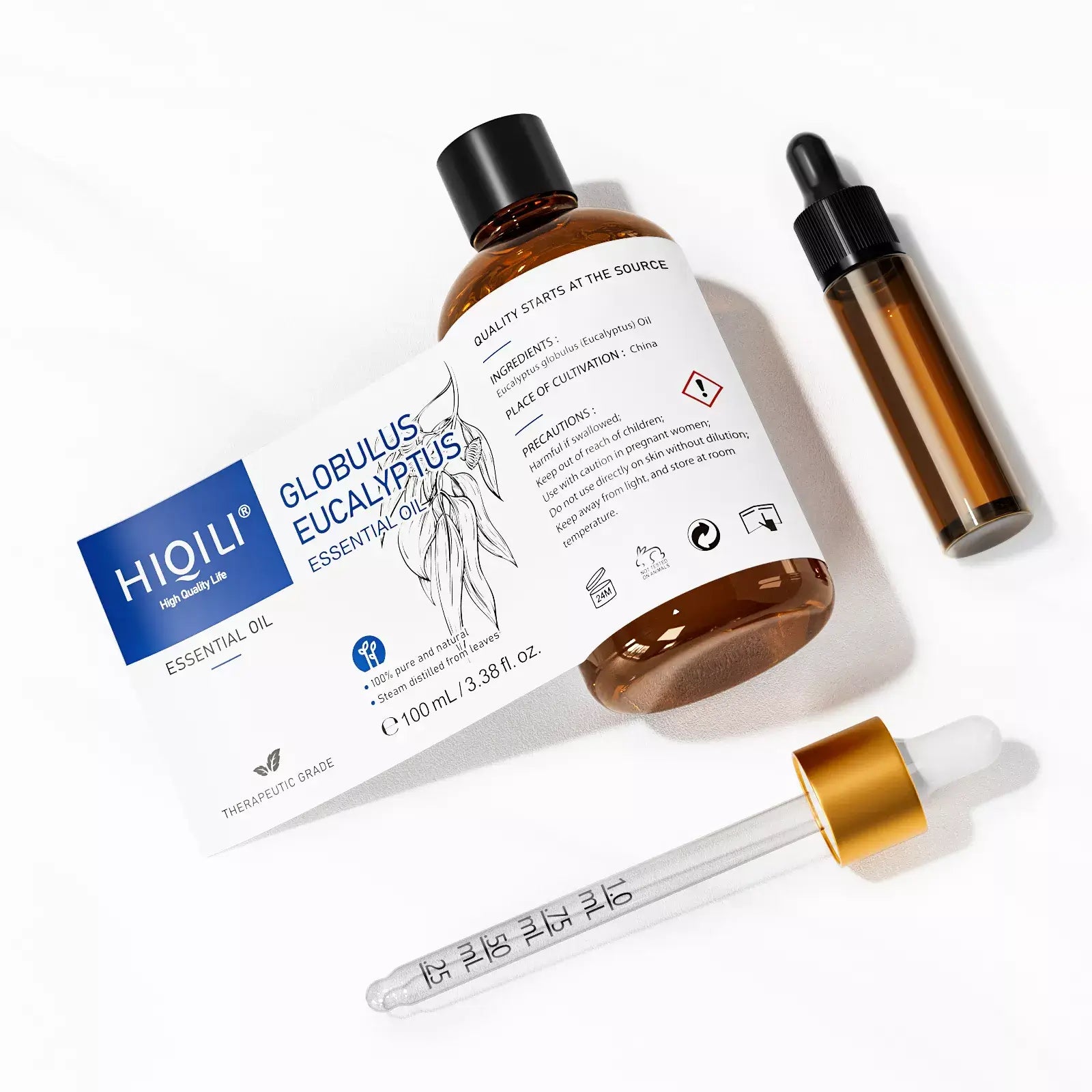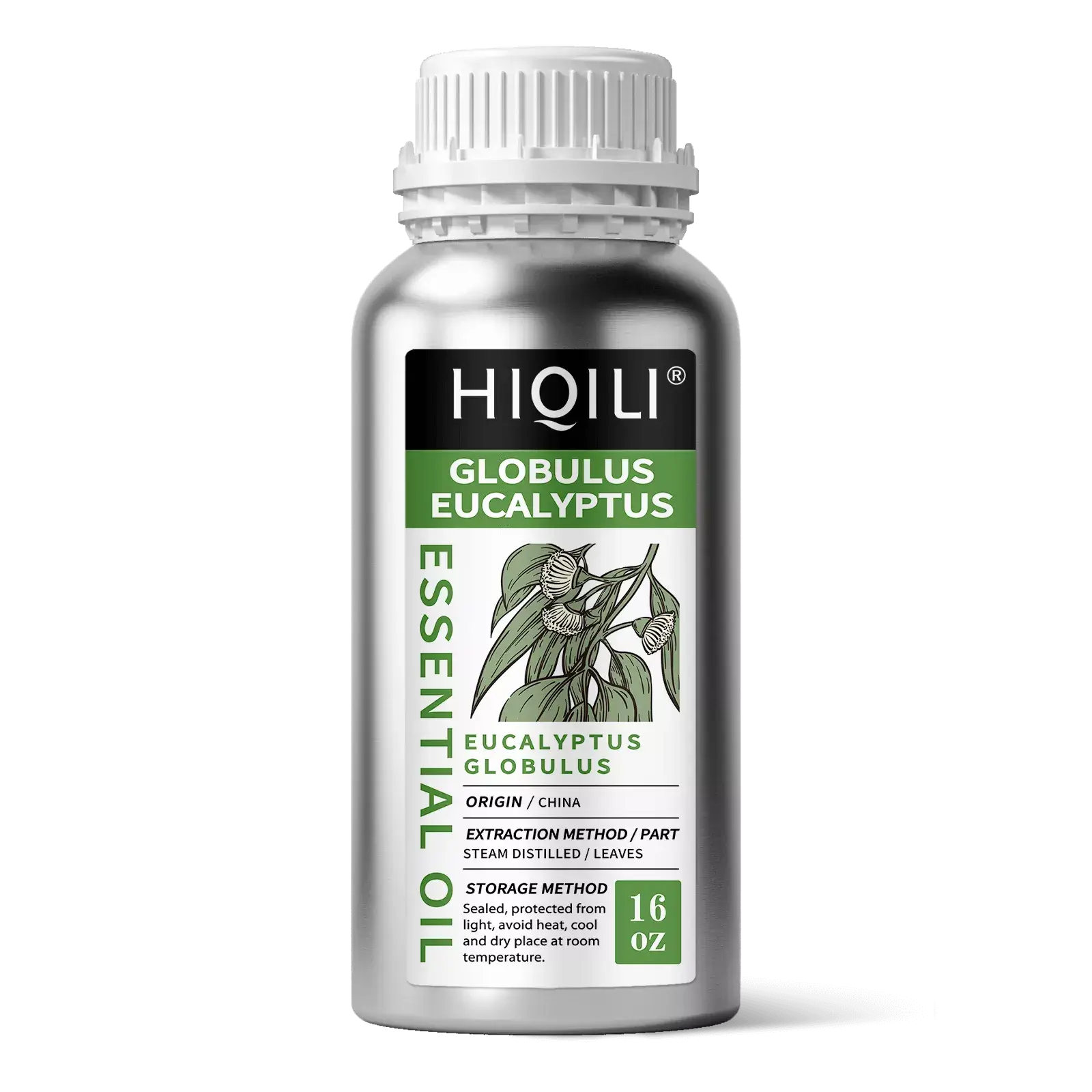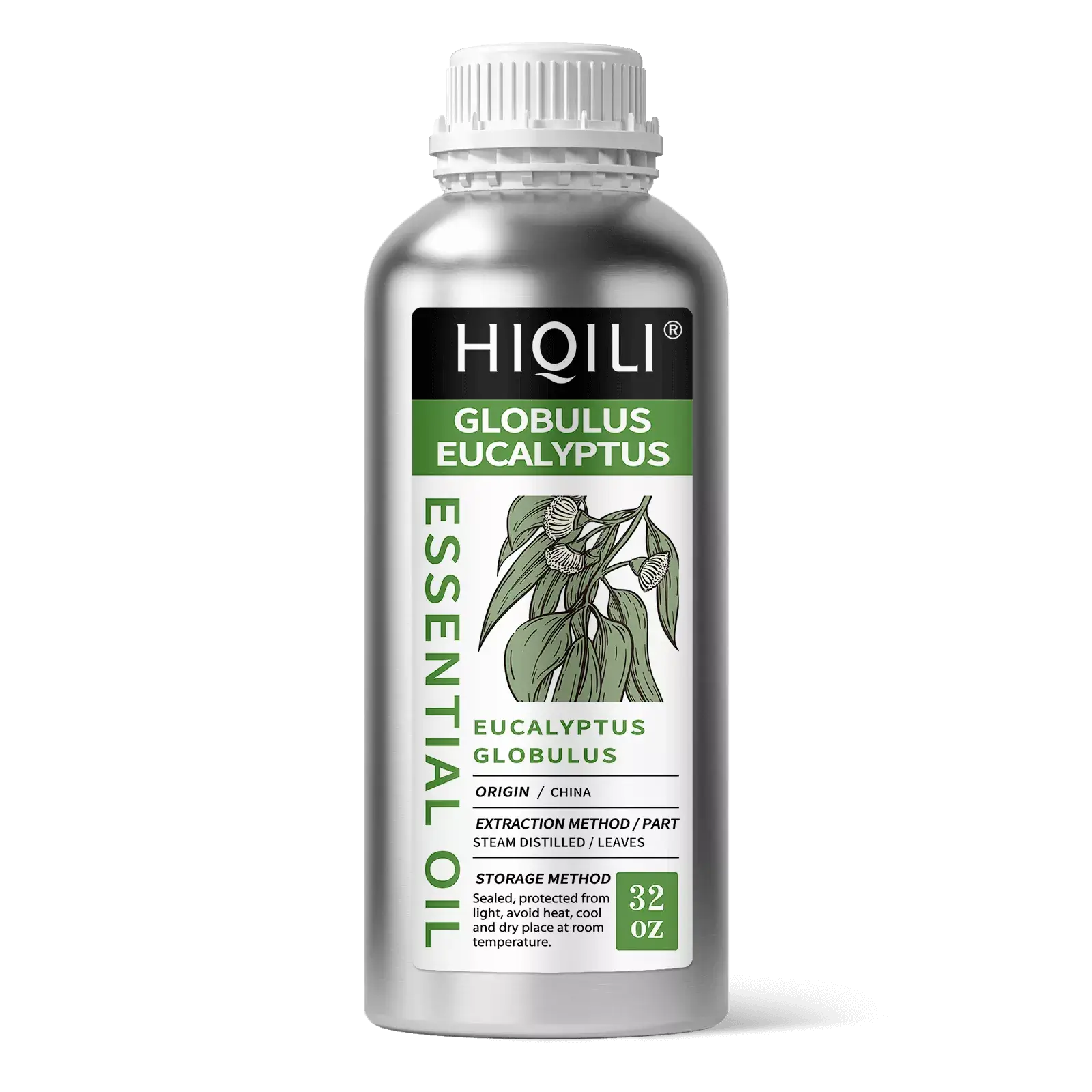








Globulus Eucalyptus Essential Oil
- ✔ Keep Bugs at Bay
- ✔ Acne Treatment
- ✔ Supports the Respiratory System
Description
Our Globulus Eucalyptus Essential Oil features a refreshing, camphoraceous aroma distilled from the leaves of the Eucalyptus globulus tree. Renowned for its fresh and penetrating scent, Eucalyptus Essential Oil is valued for its ability to promote respiratory health and clarity of mind. Our Eucalyptus Essential Oil is steam distilled from the leaves of Eucalyptus trees grown in China.
Report

Globulus Eucalyptus Essential Oil
If you have any questions, you are always welcome to contact us. We'll get back to you as soon as possible, within 24 hours on weekdays.
-
Shipping Information
Use this text to answer questions in as much detail as possible for your customers.
-
Customer Support
Use this text to answer questions in as much detail as possible for your customers.
-
FAQ’s
Use this text to answer questions in as much detail as possible for your customers.
-
Contact Us
Use this text to answer questions in as much detail as possible for your customers.
Product Details
Properties
Country
Plant part
Chemical families
Botanical families
Extraction method
Therapeutic & Aromatic Properties
Therapeutic properties
Notes
Aromas
How to Use Eucalyptus Essential Oil
Aromatherapy:
- Diffusion: Add a few drops of eucalyptus oil to a diffuser to cleanse the air, boost mental clarity, and relieve respiratory issues like congestion or colds.
- Steam Inhalation: For sinus relief, add a few drops of eucalyptus oil to a bowl of hot water, place a towel over your head, and inhale the steam deeply. This can help to clear nasal passages and relieve sinus pressure.
Topical Application:
- Chest Rub: Dilute eucalyptus oil with a carrier oil (like coconut or jojoba oil) and apply it to the chest to relieve congestion and respiratory issues. This method is especially effective for colds and coughs.
- Muscle and Joint Pain Relief: Mix eucalyptus oil with a carrier oil and massage it into sore muscles and joints to relieve pain and inflammation. It’s particularly beneficial for conditions like arthritis.
- Spot Treatment for Acne: Apply a diluted drop of eucalyptus oil directly to acne spots to reduce inflammation and kill bacteria.
Bath:
- Soothing Bath: Add a few drops of eucalyptus oil to a warm bath to help soothe sore muscles, relieve respiratory issues, and relax your body and mind. Mixing the oil with Epsom salts before adding it to the water can enhance the effects.
- Foot Soak: Add eucalyptus oil to a foot soak to refresh tired feet and help with fungal issues.
Home Cleaning:
- All-Purpose Cleaner: Mix eucalyptus oil with water and white vinegar to create a natural, antibacterial cleaner for surfaces around your home. It’s effective for killing germs and leaving a fresh scent.
- Laundry Freshener: Add a few drops of eucalyptus oil to your laundry detergent or directly to the washing machine to give your clothes a fresh scent and help eliminate bacteria.
Bugs Repellent:
- Repellent Spray: Mix eucalyptus oil with water and a carrier oil, then spray it around your home or on your skin to repel insects like mosquitoes and ticks. Eucalyptus oil can be a natural alternative to chemical repellents.
- Moth Repellent: Place cotton balls with a few drops of eucalyptus oil in your closets or drawers to repel moths and keep your clothes smelling fresh.
Oral Care:
- Mouthwash: Create a natural mouthwash by adding a drop of eucalyptus oil to a glass of water. Swish it around in your mouth to kill bacteria, freshen breath, and support gum health.
- Toothpaste Additive: Add a drop of eucalyptus oil to your toothpaste to enhance its antibacterial properties and help combat plaque.
Skin and Hair Care:
- Dandruff Treatment: Add a few drops of eucalyptus oil to your shampoo to help treat dandruff and promote a healthy scalp.
- Skin Healing: Apply diluted eucalyptus oil to minor cuts, wounds, and insect bites to promote healing and prevent infection.
Respiratory Support:
- Humidifier: Add a few drops of eucalyptus oil to your humidifier to keep the airways moist and relieve congestion, especially during cold and flu season.
- Sinus Massage: Dilute eucalyptus oil and massage it onto the temples, forehead, and under the nose to relieve sinus congestion and headaches.
Safety Precautions
Dilution: Always dilute eucalyptus oil with a carrier oil before applying it to the skin to avoid irritation.
Avoid Internal Use: Eucalyptus oil should not be ingested unless under the supervision of a qualified healthcare provider.
Sensitive Areas: Avoid applying eucalyptus oil near the eyes, inside the ears, or on broken skin.
Children and Pets: Use with caution around children and pets, as eucalyptus oil can be too potent for them.
Pregnancy: Consult with a healthcare provider before using eucalyptus oil during pregnancy.


